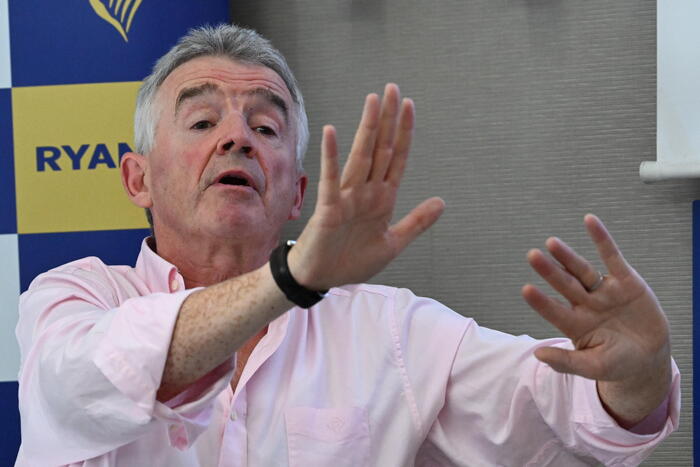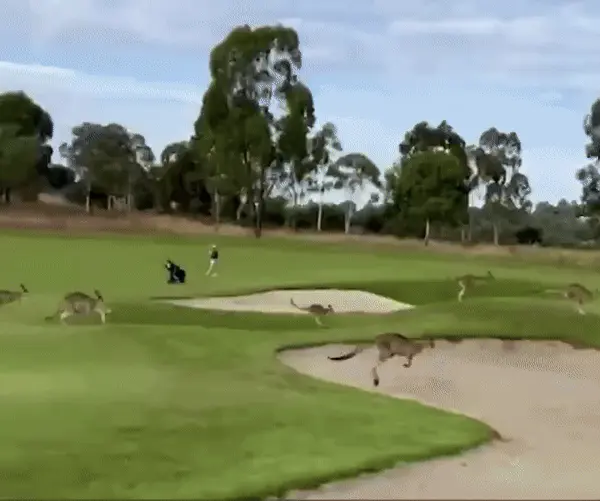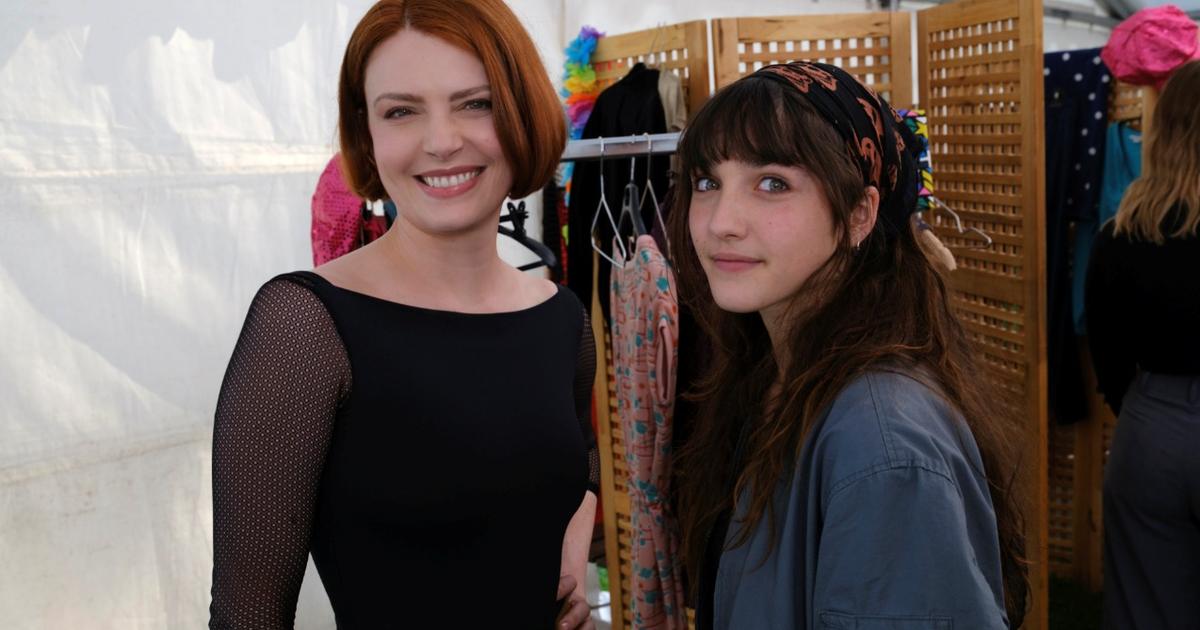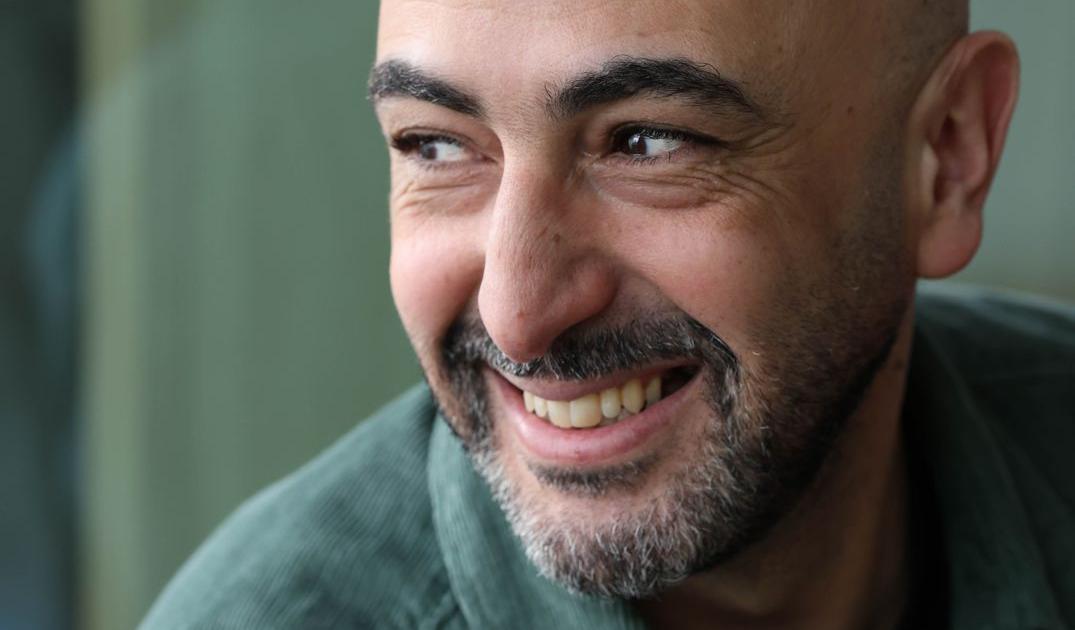Enlarge image
Cinema film "The Kangaroo Chronicles" with Dimitrij Schaad (r.)
Photo: X Films
"By the way, do you know what happens when you spell Amazon backwards?" Asks the kangaroo.
"No," I say and think about it for a moment.
"N, O, Z, A, M, A?"
"Exactly!" Says the kangaroo.
"And?" I ask.
"Ever heard of Nozama bin Laden?"
"What do you mean by that?"
"I don't want to say anything," says the kangaroo.
"I'm just giving food for thought."
Marc-Uwe Kling, "The Kangaroo Chronicles"
There are people,
who find that there is still too little talk in the world.
That we should exchange more ideas, at any time, about anything.
Because talking helps.
Because we can talk about anything.
Because what can be said must definitely be said.
Because you have to say things.
Books (and films) that follow this concept are a little bit dialogue-heavy, which is almost always a concentration exercise and sometimes very funny.
Because there is a big misunderstanding: that the more we talk to each other, the better we understand each other.
That we only have to say what is happening so that world peace can finally come about.
In reality, talking doesn't help, anyone who has ever been to a parents' evening knows that.
Understanding is an illusion.
Because even when people say the same thing, people often mean completely different things.
And because it seems almost impossible to put into words what drives you.
There is even the theory that communication between two people is fundamentally impossible, at least by means of language.
That every word immediately leads to misunderstandings.
That language confuses, but hardly ever clarifies facts.
What one cannot talk about, said the philosopher Ludwig Wittgenstein, one must be silent about it before he retreated into the Irish solitude.
Comedy arises as soon as two people talk to each other.
Because things don't go together, and because there is a gap between debit and credit, appearance and reality.
What does the woman at the next table say when Meg Ryan plays an orgasm to the astonished Billy Crystal in detail in a packed restaurant, 1989, in the very funny film "Harry and Sally"?
"I want exactly what she had."
Sometimes the comedy turns into desperation when talking past each other, not being able to get to the point no longer finds a goal, an eternal parents' evening, so to speak, as with Samuel Beckett.
ESTRAGON: Let's go!
VLADIMIR: We cannot.
ESTRAGON: Why not?
VLADIMIR: We are waiting for Godot.
ESTRAGON: (desperate) Ah!
advertisement
Hauke Goos
Writing more beautifully: 50 highlights of the German language from Adorno to Our Father (a SPIEGEL book)
Published by Deutsche Verlags-Anstalt
Number of pages: 208
Published by Deutsche Verlags-Anstalt
Number of pages: 208
Buy for € 18.00
Time of price inquiry
11/24/2021 2.35 p.m.
No guarantee
Order from Amazon
Order from Thalia
Order from Weltbild
Product reviews are purely editorial and independent.
Via the so-called affiliate links above, we usually receive a commission from the dealer when making a purchase.
More information here
Marc-Uwe Kling, a moderately successful petty artist, became famous when he wrote a book about a moderately successful petty artist who saw a kangaroo move in.
The kangaroo is a communist and likes schnapps;
the rest is dialog and is very, very funny.
"You know, by the way," that's how it usually begins.
"By the way, do you know what you get when you spell Amazon backwards?"
Whereby the wonderfully casual "by the way" pulls every dialogue partner into a trap from which they can no longer free themselves;
whole conspiracy theories are solidly based on an apparently carelessly thrown down "by the way."
A banal observation, a track (»NOZAMA«), a confirmation that is not.
"Exactly."
In a just world, the conversation would end here.
It is therefore of course imperative that we continue talking at this point.
Just like in real life.
Because someone cannot stand the silence.
Or because talking helps, whatever.
"And?"
Enlarge image
Marc-Uwe Kling
Photo: Lisa Wassmann
This is exactly where Kling thinks of the first of two pretty good punchlines.
And it is precisely that both punch lines are complete nonsense that is what makes them so beautiful.
"Ever heard of Nozama bin Laden?" The kangaroo wants to know.
Marc-Uwe then asks what anyone would ask who believes they are within a logic: "What do you mean by that?"
What the kangaroo replies to what someone replies who lives outside of any logic - and starts off with a great, timeless punchline.
"I don't want to say anything," says the kangaroo.
"I'm just giving food for thought."
Half a backward move, half a step forward, towards the next conversation, which is also silted up in the absurd because life would otherwise be unbearable.
By the way.
That's funny, it's also a consolation.
Correct understanding of a thing and misunderstanding of the same thing are not completely mutually exclusive.
Franz Kafka wrote that, he too was a great, desperate comedian.








